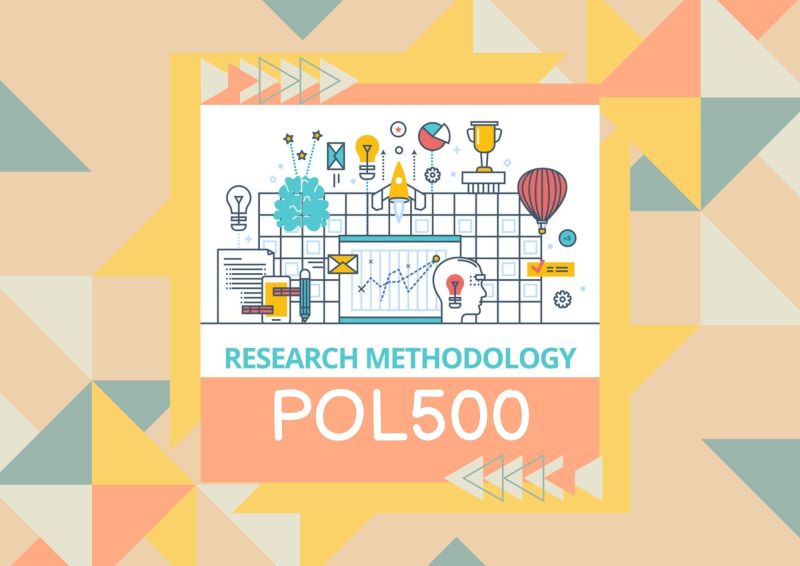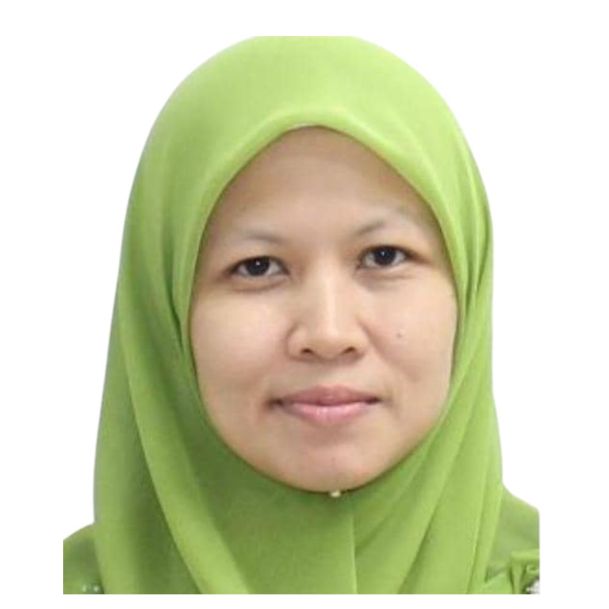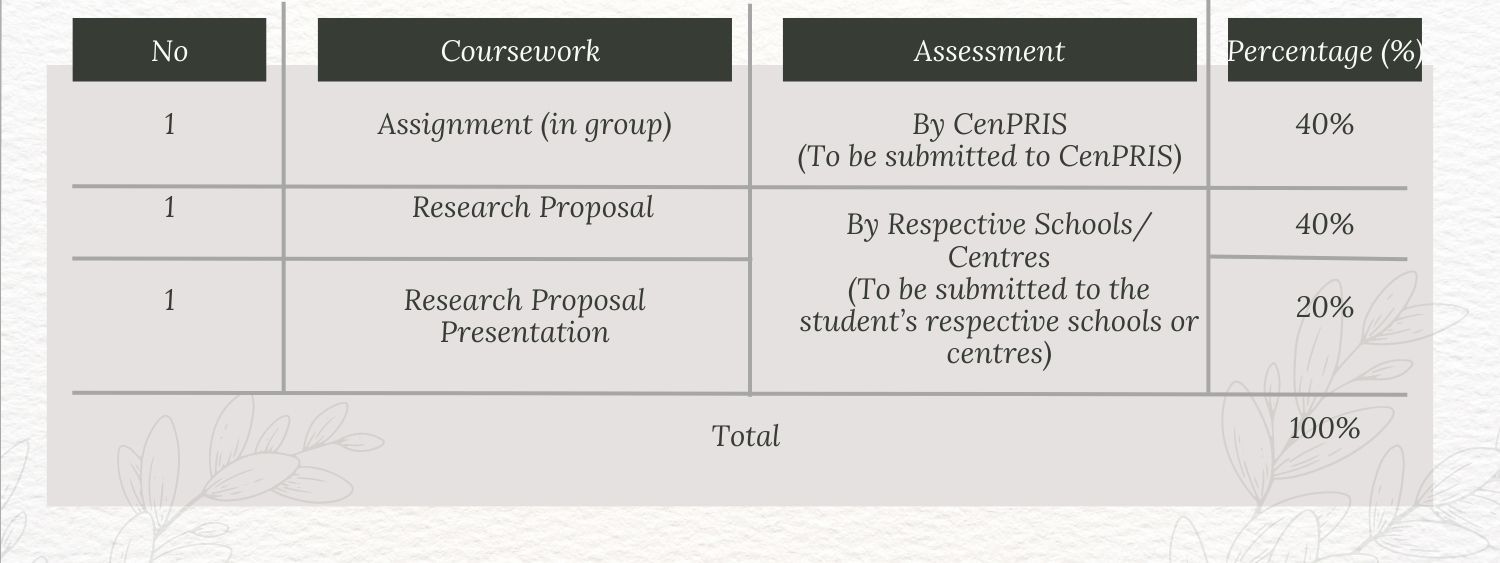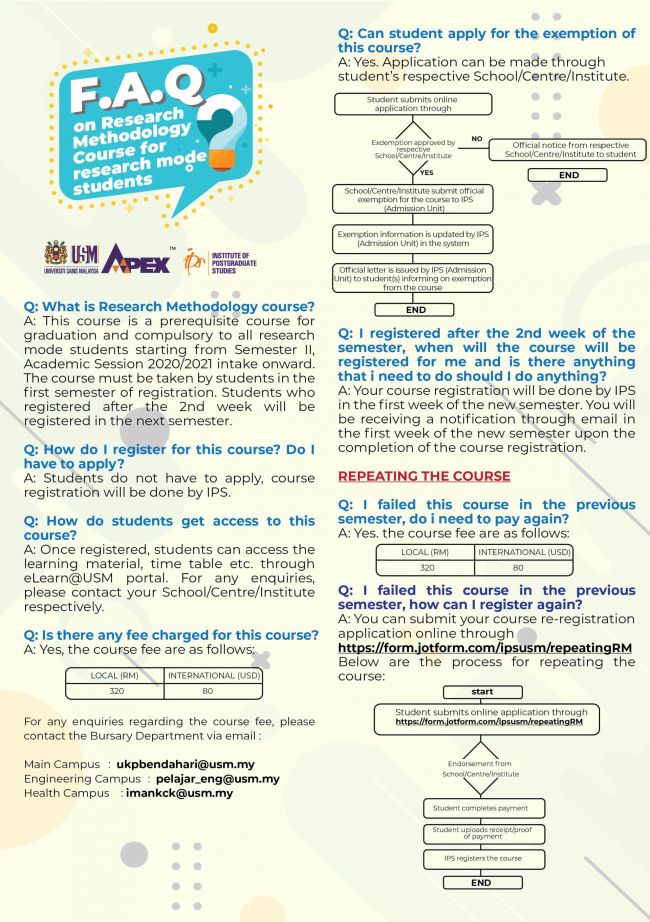POL500-Research Methodology
Class will be conducted online via eLearn@USM every Wednesday at 2:30pm to 5:30pm
Webex Link will be given one day before class start at e-learning

SYNOPSIS
This course aims to develop student research and analytical skills. Students are introduced to the research strategies and philosophies as well as theory and logic of research, the ethics that guide the research process, and to the range of research methods generally employed in the social sciences. Emphasis will be given to knowledge related to research design, data collection, elementary data analysis, and report writing. The course includes discussions of specific methodological approaches. The course also gives special attention to practical knowledge of the research process and in preparing students to conduct their own basic research projects. Students will leave the course with a better understanding of the ways to conduct their own research in various fields. This is a foundational course that will prepare students for advanced research methods courses in their chosen fields.
LEARNNG OUTCOMES
Upon successful completion of the course, students are expected to be able to demonstrate the following skill set and knowledge:
-
Ability to develop a suitable research problem and research questions based on relevant and comprehensive literature review.
-
Ability to present their research proposal at the postgraduate level.
-
Ability to propose a viable design to carry out their planned post-graduate research while upholding professional research ethics.
-
Ability to synthesise research findings by relating them to relevant theories and works related to the research objectives and sustainability issues.
LECTURERS
Course Title
Research Methodology
Course Code
POL500

Time
Wednesday 2:30 pm - 5:30 pm
Credit
3
SYNOPSIS
This course aims to develop student research and analytical skills. Students are introduced to the research strategies and philosophies as well as theory and logic of research, the ethics that guide the research process, and to the range of research methods generally employed in the social sciences. Emphasis will be given to knowledge related to research design, data collection, elementary data analysis, and report writing. The course includes discussions of specific methodological approaches. The course also gives special attention to practical knowledge of the research process and in preparing students to conduct their own basic research projects. Students will leave the course with a better understanding of the ways to conduct their own research in various fields. This is a foundational course that will prepare students for advanced research methods courses in their chosen fields.
LEARNING OUTCOMES
Upon successful completion of the course, students are expected to be able to demonstrate the following skill set and knowledge:
-
Ability to develop a suitable research problem and research questions based on relevant and comprehensive literature review.
-
Ability to present their research proposal at the postgraduate level.
-
Ability to propose a viable design to carry out their planned post-graduate research while upholding professional research ethics.
-
Ability to synthesise research findings by relating them to relevant theories and works related to the research objectives and sustainability issues.
LECTURERS : Centre for Policy Research -CPR

Assoc. Prof. Dr. Azeem Fazwan Ahmad Farouk (Coordinator-POL500)

Dr. Sazlina Md Salleh (Coordinator- POL500)

Assoc. Prof. Dr. Tang hor Foon

Assoc. Prof. Dr. Mohamad Reevany Bustami

Assoc. Prof. Dr. Goh Soo Khoon

Dr. Dayang Haszelinna Awang Ali

assoc. Prof. Dr. Azman Azwan Azmawati

Ms. Rosliza Musa (Administrative Officer)
ASSESSMENT
The assessments* for this course are as follows:

* All evaluative components for this course are compulsory and MUST be completed in order to pass the course.
POL500-Research Methodology
Semester I, Academic Session 2023/2024
Introduction to Research, Research Philosophies & Strategies
-
Objectives, workload and significance of this course;
Understanding the philosophies and strategies of research: Inductive, Deductive, Retroductive and Abductive Research.
Sustainability & Futures Episteme and Multidisciplinary Research
-
SDGs and Sustainability-related research.
Plagiarism, Ethics and Decolonizing Social Research
-
Research ethics, plagiarism, paraphrasing, the difference between reference and plagiarizing. The importance of Decolonizing knowledge and Indigenous knowledge.
+ Research Ethics
Literature Review
- Past review, recent review, gaps in literature. Essences of Literature review.
Research Problem
- Logical, Reasonable research problem; identifying and developing Resolvable problems.
Research Framework
- Theoretical / Conceptual framework; Theory-building Research.
Part 1: Quantitative Research Design
- Descriptive, Correlational, Causal- Comparative/Quasi-Experimental, and Experimental Research, Software skills, SPSS; Sampling methods, Design of Questionnaire.
MID-TERM BREAK (4 Dec to 10 Dec 2023)
Part 2: Quantitative Research Design and Quantitative Data Analysis
- Descriptive, Correlational, Causal - Comparative/Quasi-Experimental, and Experimental Research, Software skills, Characteristics of data, Modelling, and Regression Analysis.
Qualitative Research Design
-
Understanding resign-design and selected qualitative methods, e.g. ethnography, phenomenology, grounded theory, and case study.
References and Citation
Library Session + Mendeley
FAQ on Research Methodology Course for Research Mode Students
Q: What is Research Methodology course?
A: This course is a prerequisite course for graduation and compulsory to all research mode students starting from Semester II, Academic Session 2020/2021 intake onward. The course must be taken by students in the first semester of registration. Students who register after the 5th week will be enrolled in the following semester.
Q: How do students register for this course? Do students have to apply?
A: Students do not have to apply, course registration will be done by IPS.

Q: How do students get access to this course?
A: Once registered, students can access the learning material, timetable etc. through eLearn@USM portal. For any enquiries, please contact your School/Centre/Institute respectively.
Q: Can students apply for the exemption of this course?
A: Yes, application is to be made through student’s respective School/Centre/Institute

COORDINATOR AT THE RESPECTIVE SCHOOLS / CENTRES
Centre for Policy Research (CPR) | 
| Dr. Sazlina Md Salleh | |
Centre for Global Archaeological Research | 
| Dr. Suresh Narayanen | |
Centre for Islamic Development Management Studies | 
| Dr. Azrin Ibrahim | |
Centre for Instructional Technology & Multimedia | 
| Dr. Chau Kien Tsong | |
National Higher Education Research Institute | 
| Dr. Majid Ghasemy | |
School of Distance Education | 
| Assoc. Prof. Dr. Mohd Faiz Hilmi | |
School of Languages, Literacies & Translation | 
| Assoc. Prof. Dr. Malini Ng Ganapathy | |
School of Humanities | 
| Dr. Asyirah Abdul Rahim | |
School of Management | 
| Prof. Dr. Hasliza Abdul Halim | |
School of Social Sciences | 
| Assoc. Prof. Dr. Radin Firdaus Radin Badaruddin | |
School of Communication | 
| Dr. Nur Atikah A. Rahman | |
School of Arts | 
| Dr. Azrul Azizi Amirul | |
School of Educational Studies | 
| Assoc. Prof. Dr. Mageswary Karpudewan |
Findings Writing, Overall Report Writing
Findings, Comparison with prior studies, Limitations of your work, The difference between findings and conclusions, major / key findings, conclusion and implications.
Issues and Realities in Research
Problems with Implementation in the field. Access to data, emerging issues
Writing citation, Academic publication
APA, MLA/ Turabian, Chicago; Book, journal, indexed, ISI, SCOPUS, ESCI, peer review, predatory journal, mass media, popular writings, referencing Style, Citation Databases, Impact Factors, and H-Index
- Presentation to respective supervisors / schools.
IMPORTANT REMINDERS:
Please log in to the USM eLearn in every class to record your attendance. You are expected to stay until the end of the class.
- You are also encouraged to log in early.
- You are to meet up with your research presentation group once the assignment instruction is handed to you.
- Your assignment should be submitted / uploaded by the 12th Week Friday 17:00 (5:00pm). CPR will provide the link latest by 4th Week, Friday 5pm. You are encouraged to submit your video presentation earlier.
- For research proposal and research proposal presentation, please contact your supervisor on the 1st Week.
- For queries on administrative matters, please contact the Institute of Postgraduate Studies (IPS) (
This email address is being protected from spambots. You need JavaScript enabled to view it. /This email address is being protected from spambots. You need JavaScript enabled to view it. ). - For queries on specific academic matters/ specific fields, please contact your respective supervisor and school representatives/deputy deans.
- Please check the USM eLearn portal and CenPRIS’s website (https://cenpris.usm.my) weekly for updates.
REFERENCES
Acharyya, R., & Bhattacharya, N. (2019). Research Methodology for Social Sciences. Routledge.
Blaikie, N. W. H. (1993). Approaches to Social Enquiry. Polity Press.
Blaikie, N. W. H. (2009). Designing Social Research: The Logic of Anticipation (2nd ed.). John Wiley & Sons.
Bustami, R., Nasruddin, E., & Blaikie, N. (2004). Lima Falsafah Penyelidikan Paradigma dan Strategi Penyelidikan untuk Sains Sosial dan Pengurusan. Knowledge Craftsmen.
Hart, C. (2018). Doing a Literature Review: Releasing the Research Imagination (2nd ed.). SAGE Publication.
Leedy, P. D., & Ormrod, J. E. (2019). Practical Research: Planning and Design (12th ed.). Pearson.
Mills, G. E., & Gay, L. R. (2018). Educational Research: Competencies for Analysis and Applications (12th ed.). Pearson.
Sekaran, U., & Bougie, R. (2010). Research Methods for Business: A Skill Building Approach. John Wiley & Sons.
Sherman, R. R., & Webb, R. B. (1988). Qualitative Research in Education: Focus and Methods. Psychology Press.
Studenmund, A. H. (2017). Using Econometrics: A Practical Guide (7th ed.). Pearson.
United Nations (n.d.) Do you know all 17 SDGs? Retrieved September 28, 2022, from https://sdgs.un.org/goals
Zielinski, T., Sagan, I., & Suroz, W. (2018) Interdisciplinary Approaches for Sustainable Development Goals: Economic Growth, Social Inclusion and Environmental Protection. Springer International Publishing.
